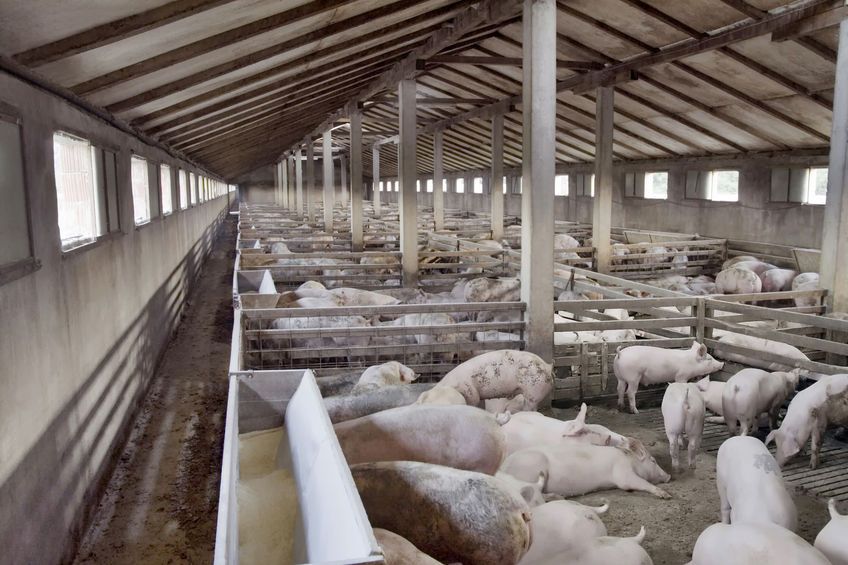
Animal welfare is not compromised on farms which house more than 5,000 animals, according to a new study.
The latest research – which has recently been published in the Universities Federation for Animal Welfare (UFAW) journal Animal Welfare, focuses specifically on animal welfare, if it is compromised in larger farms and how.
The study shows that farm animal welfare is not compromised on larger farms – but there is room for improvement
The proportion of farms with more than 5,000 animals per farm is growing with modern facilities designed to optimise management and increase efficiency.
However, criticism and concern for animal welfare amongst consumers and some politicians is also mounting as these “intensive farming” methods are believed to compromise welfare.
But the situation is far from clear cut. Various studies have been undertaken to ascertain whether the size of a farm does impact on the health and wellbeing of the animals.
The outcomes have been varied, showing that, whilst there is an increased risk of disease being brought into a facility and transmitted by a high number of potentially susceptible animals in larger farms, larger farms commonly implement improved hygiene measures and benefit from professional management which, in turn, reduces welfare risks and improves the lives of the animals.
Four basic principles
Researchers looked at the welfare level of sixty conventional fattening pig farms in Northern Germany with a range of 250 pigs to 11,000 pigs per farm.
Using four basic principles – good feeding, good housing, good health and appropriate behaviour, the study revealed that none of the farm sizes proved superior in terms of animal welfare. However, none of the farms were scored as “excellent”.
Farm size did not affect the principle of good feeding, which scored the highest of all four principles – mainly due to the fact that only a very limited number of pigs had a poor body condition.
Nonetheless, the water supply was found to be insufficient on 16 of the farms and a lack of and poorly functioning drinkers were found across all the farm sizes with one farm recording a maximum number of 43 pigs per drinker, which far exceeded the threshold of 12 per drinker required to meet German legislation.
Farm size did not affect the principle of good health either – although this was scored the lowest of the four principles.
Moderate wounds was the third most common indicator of poor welfare and there was also a high frequency of bursitis, wounds and manure on the pigs – indicative of the necessity for progression in the production system to improve animal welfare.
'Very low rates'
Although the study assessed tail-biting, lameness, hernia, severe wounds, skin condition, coughing and sneezing these were only seen at very low rates without any difference between the farm sizes.
Appropriate behaviour also recorded low scores in all the farm sizes. The space allowances in more than 40% of the pens were below the German Farm Animal Welfare Regulations and over-crowded pens were found on 92% of the farms - although the proportion of over-crowed pens was lowest on large farms.
One of the report’s authors, Dr Christian Lambertz of the Research Institute of Organic Agriculture (FiBL) said: “Our study did not show that farm size was a factor for the animals’ welfare, however, the high occurrence of bursitis and soiled animals, which are known to be affected by floor type and quality, underline the necessity of improving the quality of floors and of climate management. Simple adjustments in the management of space allowances and of water supply can also improve welfare.”
The study concluded that although overall, acceptable or enhanced scores were achieved for many of the criteria, the need for improvement in others was clear.
